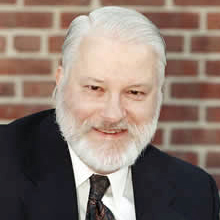

Dr. R. Amanda Cooper, PhD. (image on right), assistant professor of interpersonal communication, has been selected as the recipient of the 2025 Leslie A. Baxter Early Career Award, presented by the Family Communication Division of the National Communication Association (NCA).
Dr. Elizabeth Hintz, PhD. (image on left), assistant professor of health communication, has been honored with the 2025 Early Career Scholar Award from NCA’s Health Communication Division. This marks her third early career accolade from the association—having previously received awards from the Interpersonal Communication and Family Communication divisions in 2023. With this trio of recognitions, Hintz has achieved a rare and distinguished milestone in the field of communication.
These awards celebrate the impactful research and scholarly contributions of Cooper and Hintz, as well as their commitment to advancing their respective areas of study.
Awardees will be formally recognized at the 111th Annual NCA Convention this November.
The National Communication Association is a scholarly society committed to promoting excellence in communication research, education, and practice to enrich lives and foster a more informed and connected world.
 It is with great sadness that we share the passing of Dr. Ross Buck.
It is with great sadness that we share the passing of Dr. Ross Buck.